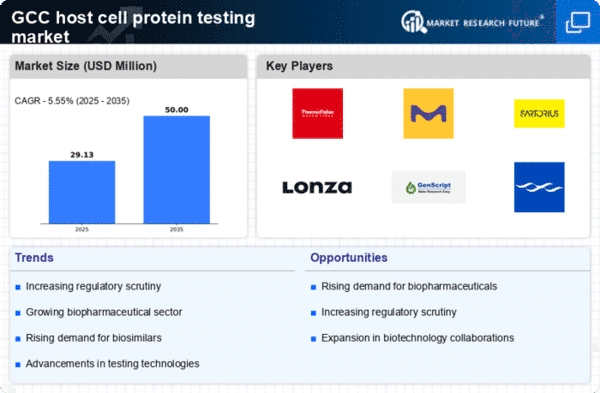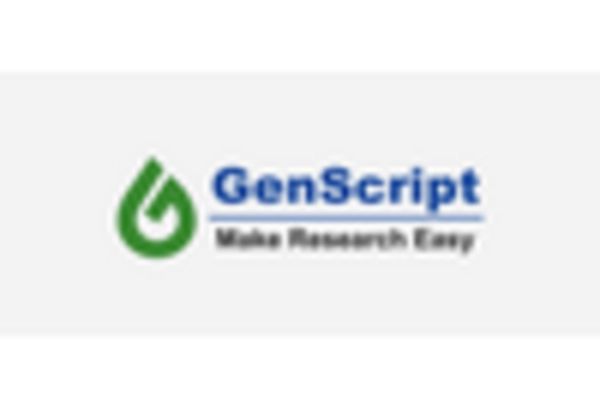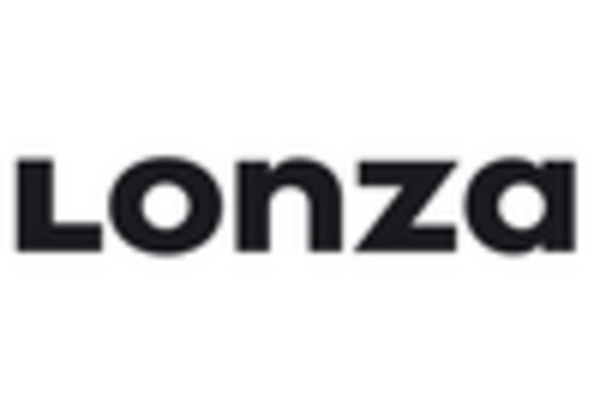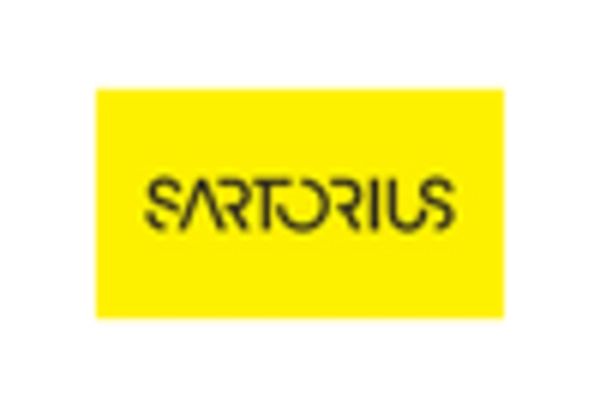Rising Demand for Biologics
The increasing demand for biologics in the GCC region is a primary driver for the host cell-protein-testing market. As the biopharmaceutical sector expands, the need for effective testing methods to ensure product safety and efficacy becomes paramount. The GCC biopharmaceutical market is projected to grow at a CAGR of approximately 8% from 2025 to 2030, indicating a robust market environment. This growth necessitates stringent testing protocols to identify and quantify host cell proteins, which can impact the quality of biologics. Consequently, companies are investing in advanced testing technologies to meet regulatory requirements and consumer expectations, thereby propelling the host cell-protein-testing market forward.
Increased Regulatory Scrutiny
Regulatory bodies in the GCC are intensifying their scrutiny of biopharmaceutical products, which significantly influences the host cell-protein-testing market. The need for compliance with stringent regulations ensures that manufacturers adopt comprehensive testing protocols to detect host cell proteins. This trend is driven by the necessity to safeguard public health and maintain product integrity. As regulations evolve, companies are compelled to enhance their testing capabilities, leading to an uptick in demand for host cell-protein testing services. The market is expected to witness a growth rate of around 6% annually as firms adapt to these regulatory changes, thereby reinforcing the importance of robust testing methodologies.
Growing Awareness of Product Safety
There is a growing awareness of product safety among consumers and healthcare professionals in the GCC, which is driving the host cell-protein-testing market. As patients become more informed about the potential risks associated with biologics, the demand for transparency in testing practices increases. This trend compels manufacturers to adopt rigorous testing protocols to ensure that their products are free from harmful host cell proteins. Consequently, companies are prioritizing quality assurance measures, leading to an expansion of the host cell-protein-testing market. The market is expected to grow at a rate of 4% annually as stakeholders recognize the importance of safety in biopharmaceutical products.
Technological Innovations in Testing
Technological advancements are reshaping the landscape of the host cell-protein-testing market. Innovations such as high-throughput screening and mass spectrometry are enhancing the accuracy and efficiency of testing processes. These technologies allow for the rapid identification and quantification of host cell proteins, which is crucial for biopharmaceutical development. The integration of automation and artificial intelligence in testing procedures is also gaining traction, potentially reducing operational costs and time. As the GCC region embraces these technological innovations, the host cell-protein-testing market is likely to experience a surge in demand, with an anticipated growth rate of 7% over the next few years.
Expansion of Research and Development Activities
The expansion of research and development (R&D) activities in the GCC is a significant driver for the host cell-protein-testing market. With an increasing focus on developing novel therapeutics and vaccines, pharmaceutical companies are investing heavily in R&D. This investment necessitates rigorous testing of host cell proteins to ensure the safety and efficacy of new products. The GCC governments are also supporting R&D initiatives, which further stimulates market growth. As a result, the host cell-protein-testing market is projected to grow by approximately 5% annually, reflecting the critical role of testing in the R&D process.
















